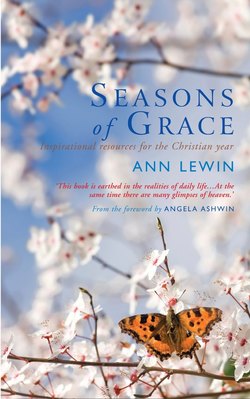Читать книгу Seasons of Grace - Ann Lewin - Страница 28
На сайте Литреса книга снята с продажи.
ОглавлениеEpiphany
Picture the scene: a room with a large dining table. Three men in sumptuous flowing robes are watching a fourth man, obviously a servant, laying the table. Through a window, which by its shape tells us that this is a scene from the East, you can see a couple approaching in the distance, pushing a buggy with a child in it. One of the men explains the situation to the servant, who is looking a bit puzzled: ‘You see, last year we went to them, so this year they are coming to us.’
I admire the skill of cartoonists, who with a few strokes of the pen and some well-chosen words can make a comment about our human condition, and at the same time make us think about deeper truths.
Over the last few years, cartoonists have provided some interesting springboards for thought about this Epiphany story. The one I have just described latches on to a perennial anxiety about where parts of a family spend Christmas, and whose turn it is to be host. With luck, we can laugh about it. But the deep truth about Jesus spending Christmas with us is that he comes every year, and stays with us all the time. So the real question is not about whose turn it is, but about how we are going to respond to this amazing generosity of God in giving himself to us.
The Wise Men in the story responded by offering gifts to the Christ-child. Another cartoon shows them having a conversation with each other. Two of them are holding the traditional gifts, the third is holding an envelope. In response to their concerned looks, he says, ‘Yes, I know. But a token is so much lighter.’ Will our response to God be a token gesture? Or will we offer something precious? And what precious thing have we got anyway? We need to be wary about using this story as if it’s a prelude to a stewardship campaign – dig a little deeper into your pocket. It’s more profound than that. The most precious thing we have is ourself. That is what God longs for us to give him.
We perhaps don’t always think of ourselves as precious: we are quite good at putting ourselves down. But the gifts the Wise Men brought are our gifts too. Each of us is precious to God – in God’s eyes each of us is pure gold. We may have to dig deep to find it, but that is God’s truth about each one of us. Offer the frankincense of worship, and as we attend prayerfully to God, and learn more about God and ourselves, we recognize God’s truth about us: ‘You are precious in my sight, and honoured, and I love you’ (Isaiah 43.4).
That truth about being precious will be tested with the myrrh of suffering – all around us, and perhaps touching us more personally too. Faithfulness to God’s love is part of our response. As the carol puts it:
What can I give him,
Poor as I am?
If I were a shepherd
I would bring a lamb;
If I were a wise man
I would do my part;
Yet what I can I give him –
Give my heart.
That is a response to God not just for Epiphany, but for every day. Another cartoon takes us into the vestry, where the vicar is holding open a cupboard door. At his feet, the tiny crib figures process past him and the caption reads, ‘So it was back into the vestry cupboard for another year.’
Will that be how we deal with Christmas too? Has the celebration made any difference to us? The commercial world has moved on, Christmas has been put away, hot cross buns are on sale. But Christmas isn’t over. God is with us every day, the baby grows into adulthood if we will let him, and he challenges us to recognize him and respond to him in our daily lives.
